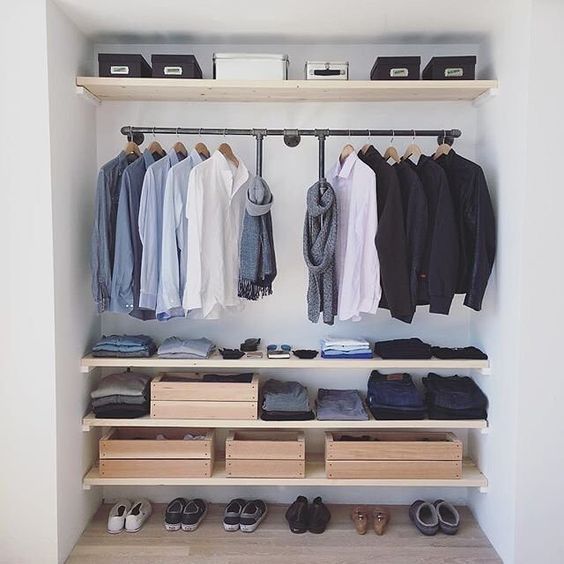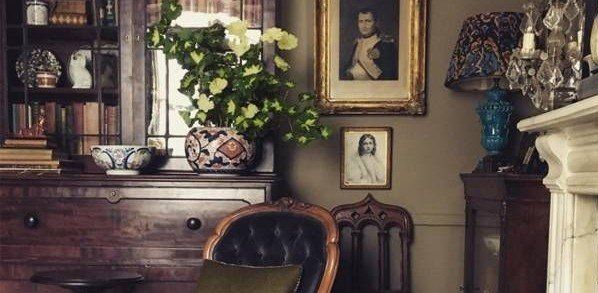What happens when you work with an organiser?
- by Elizabeth Gresson
- •
- 09 Nov, 2020
Will you make me throw things away? Will my stuff end up in landfill?

These are probably the two most common questions I’m asked when I speak to a potential client.
When I help clients I work to their agenda, not mine and they will always have control over the process. I don’t tell them how we’ll work or what we’ll keep. We start where they choose, in the area that’s causing them the most problems. It could be that a bedroom is so full of stuff that they can no longer sleep there. It may be that they have books spread all round the house and they want to make space in one room to put them all together. They may have a garage stuffed with boxes which still haven’t been unpacked from when they moved in several years ago. Their house may be ordered and organised but they’re paying monthly fees for a storage unit full of stuff which they want to sort through.
We start by going through their thing and I ask them to decide what they want to keep. When I ask them about an item, this gets them to really think about it and what it means, if anything, and enables them to make a decision about whether to keep it or not. One client told me that this process made him accountable. Not to me, but to himself.
The process can take time. I worked with a client who found it very hard to let go of certain items of clothing. She knew she wouldn’t wear them again - they came from a time of her life that was over, but the decision was still hard to make. With some items we spent 20 minutes talking about each one before she was able to let them go. At the end of working with me, she told me she had found it “therapeutic”.
I can encourage decisions and provide some perspective, but the choice is always the client’s.
Most people are (rightly) concerned with the environmental impact of their decluttering. Many of them though, don’t know the wide range of things that can now be repurposed and recycled. I do know, and I’m able to reassure them that most of what they let go can be reused in some way. I don’t believe though that a desire to keep something out of landfill warrants holding onto an item if that’s the only reason to keep it.
So, if you want to get the clutter cleared but are anxious about working with an organiser, be reassured that with me it is a gentle process where you won’t come under any pressure or have any judgments made.
Contact me for a free half hour consultation and see how I can help to get it All Organised for You!


Many of us have things in our houses which have a story attached to them. The Chinese vases that Great Uncle Harry brought back from Hong Kong; the clock grandfather was presented with when he retired; the silver napkin rings which were a wedding present; or the chair that was in the hall of an old family home. When we’re in the position of having to consider what we have - maybe for a house move - we often enlist the help of our families. They too know the back story of these items and they are just “Uncle Harry’s vases”, “the chair from Albion Road”, or “grandfather’s clock”. There is no thought or consideration about why we have them and often we don’t see them anymore. They’ve just always been there. Other family members wouldn't want the items in their own houses, but they are reluctant to see them discarded because of the obligations of the back story.
When I work with clients, I don’t know the history or associations of any of their possessions, and I will simply ask about that clock, those pictures, that ornament. When a client tells me the story, it’s like talking to a therapist who is completely detached from it. As the client starts to tell me about the background of how Great Uncle Harry, or their grandfather acquired the item and how long it’s been in their house, they start to ask themselves the significance of it. Maybe Great Uncle Harry was their husband’s relative, they never met him and actually they don’t like the vases very much. The clock may have a loud annoying tick and is kept in a cupboard and never wound up. Once they have worked through the process of considering the item and its meaning to them, they very often then feel able to let go of it. They can tell family members that they don’t want it any longer, and if the rest of the family feel strongly about it, one of them can take it. Not surprisingly, when confronted with this, the family members often agree that it can be sold, or just given away.
For me, decluttering is about making mindful, intentional choices about what we have in our houses. Our homes are about us, what’s important to us and what we value. It shouldn't be about holding onto things from an obligation to other people. I wouldn’t want to think that someone kept something in their home that they didn’t like, simply because I gave to them, or that my children felt obligated to keep possessions of mine that mean nothing to them. I would prefer that they passed it onto someone who valued it and actively wanted in their home.
So, give yourself permission to let go of the things that you’re only keeping because of their back story and only have in your home the things that mean something to you. If you want my help to support you through the process, get in touch and let’s get started!

So, we’ve started to emerge from lockdown. Do you remember what you planned to do when lockdown started? Learn a new skill? Catch up with some box sets? Read all the Bronte novels? Finally get round to decluttering? I’m willing to bet that you’re more likely to have watched all 5 series of Line of Duty and read Wuthering Heights than to have decluttered your home. Why? Because what holds most people back from clearing the clutter is not time. They can become blind to what they have in their houses and until they’re able to think dispassionately about what they have, it’s not easy to make decisions.
People hold onto things for many reasons. For instance, items that they don’t actually like but feel they can’t get rid of, like things they’ve inherited or been given. They feel that they owe it to the person who left or gave them the item to keep it. When I work with someone in this situation, I ask them if they think the deceased relative or donor would want them to have something in their house that they don’t like. I remind them that it’s their choice what they have in their home and it’s not disrespectful to let go of an item they don’t like. It doesn’t reflect what they feel about the person who left or gave them the item.
Another reason people give for holding onto an item is the “just in case” scenario. I work with clients who tell me they may need a certain item in the future, or someone they know might be able to use it. This is really just putting off making a decision, so I will suggest to them that if they don’t realistically need it in the very immediate future, then someone else can probably use it right now. If they do need it in the future, they can always obtain another one, but to clutter up one’s house with things they “might” need at some point is like living in a warehouse.
A big block for many people in clearing the clutter is the thought of where it will go if they get rid of it. Many clients say to me “I don’t want it to go to landfill”. For me, that’s not a good reason to hold onto things. Do you want your house to be a substitute landfill site? I know many methods of disposal which don’t involve simply throwing things away. Far more things can now be recycled than previously. Using sites like Freecycle means that items will be used by people who actually need them. There have been recent developments in waste disposal, such as the use of rubbish for energy generation and a big reduction in the use of landfill.
So, if you’ve made a start on the decluttering and have hit a wall, or if you’d like to get started, get in touch for a free half hour consultation.
